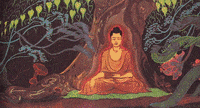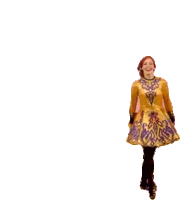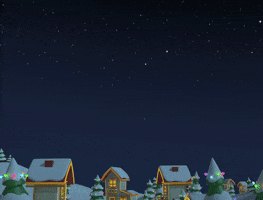LESSON 3554 Sun 3 Jan 2021
Free
Online Step by Step Guide and Practice to Attain Nibbana the Eternal
Bliss in Buddha’s Own Words for Devotees Attired in White Cloth Covered
from Head to Toe in Pure White Snow Fall Environment as in Fourth Jhana
Kushinara Banana Bhumi Pagoda- Free Online Analytical Research and Practice University
12) Classical Armenian-դասական հայերեն,13) Classical Azerbaijani- Klassik Azərbaycan,14) Classical Basque- Euskal klasikoa,15) Classical Belarusian-Класічная беларуская,16) Classical Bengali-ক্লাসিক্যাল বাংলা,17) Classical Bosnian-Klasični bosanski,18) Classical Bulgaria- Класически българск,19) Classical Catalan-Català clàssic,20) Classical Cebuano-Klase sa Sugbo,21) Classical Chichewa-Chikale cha Chichewa,22) Classical Chinese (Simplified)-古典中文(简体),23) Classical Chinese (Traditional)-古典中文(繁體),24) Classical Corsican-Corsa Corsicana,25) Classical Croatian-Klasična hrvatska,26) Classical Czech-Klasická čeština,27) Classical Danish-Klassisk dansk,Klassisk dansk,28) Classical Dutch- Klassiek Nederlands,30) Classical Esperanto-Klasika Esperanto,31) Classical Estonian- klassikaline eesti keel,

AN 5.209 (A iii 251)
Gītassara Sutta
This sutta has been largely overlooked by the various buddhist
traditions: the Buddha explains why he does not allow the bhikkhus to
perform any melodic chanting.
Note: info·bubbles on every Pali word
Pāḷi |
English |
|
Pañc·ime, bhikkhave, ādīnavā āyatakena gīta·s·sarena dhammaṃ bhaṇantassa. Katame pañca? |
|
|
Attanā·pi tasmiṃ sare sārajjati, pare·pi tasmiṃ sare sārajjanti, gahapati·kā·pi ujjhāyanti: ‘yath·eva mayaṃ gāyāma, evam·evaṃ kho samaṇā sakyaputtiyā gāyantī’ti, sarakuttim·pi nikāmayamānassa samādhissa bhaṅgo hoti, pacchimā janatā diṭṭhānugatiṃ āpajjati. |
|
|
Ime kho, bhikkhave, pañca ādīnavā āyatakena gīta·s·sarena dhammaṃ bhaṇantassā·ti. |
|
Note
1. householders get angry..:
this sutta is actually an excerpt from the Cūḷavagga of the Vinaya
Pitaka (Cv 249), where a certain group of six bhikkhus performs such a
chanting and householders are described to have been annoyed in those
terms (it is quite frequent in the Vinaya to find lay people criticizing
monks for enjoying sensual pleasures). Having been reported the matter,
the Buddha utters this sutta and then declares that doing so anyway
would constitute a dukkaṭa offense (ie. of wrong-doing, a light
offense). The Cūḷavagga then cites a case in which the Buddha states
that he nevertheless allows recitation with an intonation (sara·bhañña).
Translation suggested by the webmaster,
with the support of Sister Upalavanna’s translation.
———oOo———
Published as a gift of Dhamma, to be distributed free of charge.
Any copies or derivatives of this work must cite their original source.
sutta has been largely overlooked by the various buddhist traditions:
the Buddha explains why he does not allow the bhikkhus to perform any
melodic chanting.
gets attached to that intonation, others get attached to that
intonation, householders get angry: ‘Those ascetics who are followers of
the Sakyans’ son sing in the same way that we do!’,{1} there is a break
in concentration for those striving [to produce] musicality, and the
upcoming generations imitate what they see.
householders get angry..: this sutta is actually an excerpt from the
Cūḷavagga of the Vinaya Pitaka (Cv 249), where a certain group of six
bhikkhus performs such a chanting and householders are described to have
been annoyed in those terms (it is quite frequent in the Vinaya to find
lay people criticizing monks for enjoying sensual pleasures). Having
been reported the matter, the Buddha utters this sutta and then declares
that doing so anyway would constitute a dukkaṭa offense (ie. of
wrong-doing, a light offense). The Cūḷavagga then cites a case in which
the Buddha states that he nevertheless allows recitation with an
intonation (sara·bhañña).
This Video is Just for educational purposes and does not have any
intention to mislead or violate Google and YouTube community guidelines
or policy. I respect and follow all terms & conditions of Google
& YouTube.
06) Classical Devanagari,Classical Hindi-Devanagari- शास्त्रीय हिंदी,
उस इंटोनेशन से जुड़ जाता है, दूसरे उस इंट्रॉन से जुड़ जाते हैं, घरवाले
नाराज हो जाते हैं: ‘जो सन्यासी के बेटे के अनुयायी हैं वे उसी तरह से गाते
हैं जैसे हम करते हैं!’, {1} एकाग्रता के लिए एक विराम है। उन लोगों का
प्रयास [संगीत का उत्पादन करने के लिए], और आने वाली पीढ़ियां उनकी नकल
करती हैं।
08) Classical Afrikaans– Klassieke Afrikaans,

raak geheg aan daardie intonasie, ander word geheg aan daardie
intonasie, huishoudings word kwaad: ‘Die askete wat volgelinge van die
seun van die Sakyans is, sing op dieselfde manier as ons!’, {1} daar is
‘n onderbreking in die konsentrasie vir diegene wat streef na
musikaliteit, en die komende geslagte boots dit na wat hulle sien.

lidhet me atë intonacion, të tjerët lidhen me atë intonacion,
shtëpiakët zemërohen: ‘Ata asketikë që janë pasues të djalit të Sakyans
këndojnë në të njëjtën mënyrë si ne!’, {1} ka një ndërprerje të
përqendrimit për ata që përpiqen [të prodhojnë] muzikalitet dhe brezat e
ardhshëm imitojnë atë që shohin.
ከዛች ኢንቶኔሽን ጋር ተጣብቃለች ፣ ሌሎች ደግሞ ከዚህ ኢንቶኔሽን ጋር ተጣብቀዋል ፣ የቤቱ ባለቤቶች
ይቆጣሉ-‹እነዚያ የሳኪያን ልጅ ተከታዮች የሆኑት አስትራኮች እኛ እንደምናደርገው በተመሳሳይ ይዘምራሉ!’ ፣ {1}
ሙዚቃዊነትን ለማፍራት የሚጥሩ እና መጪዎቹ ትውልዶች ያዩትን ይኮርጃሉ ፡፡

المرء بهذا التنغيم ، ويتعلق الآخرون بهذا التنغيم ، ويغضب أصحاب المنازل:
“هؤلاء الزاهدون الذين هم أتباع ابن ساكيين يغنون بنفس الطريقة التي نغني
بها!” ، {1} هناك انقطاع في التركيز عند أولئك الذين يسعون لإنتاج الموسيقى
، والأجيال القادمة تقلد ما يرونه.
12) Classical Armenian-դասական հայերեն,

իրեն կցվում է այդ ինտոնացիային, մյուսները ՝ այդ ինտոնացիային, տնային
տնտեսությունները զայրանում են. «Նրանք, ովքեր սակյանների որդու
հետևորդներն են, երգում են այնպես, ինչպես մենք», {1} համակենտրոնացման
ընդմիջում կա նրանք, ովքեր ձգտում են [արտադրել] երաժշտականություն, և
գալիք սերունդները ընդօրինակում են իրենց տեսածը:
13) Classical Azerbaijani- Klassik Azərbaycan,

də o intonasiyaya, digərləri bu intonasiyaya bağlanır, evdəkilər
əsəbiləşir: ‘Sakilərin oğlunun ardıcılları olan zahidlər bizim etdiyimiz
kimi oxuyurlar!’, {1} üçün konsentrasiyada bir fasilə var musiqi
yaratmağa çalışan və gələcək nəsillər gördüklərini təqlid edirlər.

intonazio horri lotzen zaio, beste batzuk intonazio horri lotzen
zaizkio, etxekoak haserretzen dira: ‘Sakianen semearen jarraitzaile
diren aszeta horiek guk egiten dugun moduan kantatzen dute!’, {1}
kontzentrazioa eten egiten da musikaltasuna [sortzen] ahalegintzen
direnek eta datozen belaunaldiek ikusten dutena imitatzen dute.
15) Classical Belarusian-Класічная беларуская,

прывязваецца да гэтай інтанацыі, іншыя прывязваюцца да гэтай інтанацыі,
дамачадцы злуюцца: “Тыя падзвіжнікі, якія з’яўляюцца паслядоўнікамі
сына Сак’ян, спяваюць гэтак жа, як і мы!”, {1} канцэнтрацыя ўвагі для
тыя, хто імкнецца [стварыць] музычнасць, і будучыя пакаленні пераймаюць
тое, што бачаць.

সেই প্রবৃত্তির সাথে যুক্ত হন, অন্যরা এই প্রবণতার সাথে যুক্ত হন,
গৃহকর্তারা রাগান্বিত হন: ‘যে তপস্বীরা সাক্যদের ছেলের অনুসারী, আমরা
সেইভাবেই গান করি!’, {1 for এর জন্য একাগ্রতার বিরতি রয়েছে যারা [সংগীত
তৈরির জন্য] প্রয়াস চালাচ্ছে এবং আগত প্রজন্ম তারা যা দেখছে তা অনুকরণ
করে।
17) Classical Bosnian-Klasični bosanski,

se veže za tu intonaciju, drugi se veže za tu intonaciju, ukućani se
ljute: ‘Oni podvižnici koji su sljedbenici sina Sakjana pjevaju na isti
način kao i mi!’, {1} postoji prekid koncentracije za oni koji teže [da
proizvedu] muzikalnost i buduće generacije oponašaju ono što vide.
18) Classical Bulgaria- Класически българск,
се привързва към тази интонация, други се привързват към тази
интонация, домакините се ядосват: „Онези подвижници, които са
последователи на сина на Сакян, пеят по същия начин като нас!“, {1} има
прекъсване на концентрацията за онези, които се стремят [да произведат]
музикалност, и предстоящите поколения имитират това, което виждат.

mateix s’adhereix a aquesta entonació, d’altres s’uneixen a aquesta
entonació, els homes de casa s’enfaden: “Aquells ascetes que són
seguidors del fill dels saquians canten de la mateixa manera que
nosaltres!”, {1} hi ha una ruptura de concentració per aquells que
s’esforcen [per produir] musicalitat i les properes generacions imiten
el que veuen.

bhikkhus, kining lima nga mga drawbacks sa paglitok sa Dhamma nga
adunay usa ka malungtaron nga melodic intonation. Kinsa sa lima?
kaugalingon naapil sa intonasyon nga kana, ang uban nadugtong sa
intonasyon nga iyon, nasuko ang mga tagbalay: ‘Kadtong mga ascetics nga
mga sumusunod sa anak nga Sakyans nag-awit sa parehas nga paagi sa
amon!’, {1} adunay pag-undang sa konsentrasyon alang sa kadtong
nagtinguha [aron makahimo] musikalidad, ug sa umaabot nga mga henerasyon
sundogon ang ilang nakita.
21) Classical Chichewa-Chikale cha Chichewa,
amadziphatika kwa katchulidwe kameneka, ena amakhudzidwa ndi kamvekedwe
kameneko, eni nyumba amakwiya: ‘Anthu odzipereka omwe amatsatira mwana
wamwamuna wa a Sakyans amayimbanso momwe timayimbira!’, {1} pali nthawi
yopumira omwe akuyesetsa [kutulutsa] nyimbo, ndipo mibadwo ikubwera
imatsanzira zomwe akuwona.…
22) Classical Chinese (Simplified)-古典中文(简体),
與法寶影音網站,共同發心致力繁體版本的流通。並由於Pat
Wang居士、居住嘉義的葉師姐協助,修正原繁體版本字幕之誤植與符合經典的用字。法寶影音網站(陳師姐)並取得繁體公益版本的授權,可以流通與發行。
(on behalf of Hollywood Records); Walt Disney Music Company
(Publishing), UMPI, AMRA, UNIAO BRASILEIRA DE EDITORAS DE MUSICA - UBEM,
LatinAutorPerf, BMI - Broadcast Music Inc., LatinAutor - UMPG, and 16
Music Rights Societies
for a 3rd Party (on behalf of Future World Music); UMPI, LatinAutor -
Warner Chappell, UNIAO BRASILEIRA DE EDITORAS DE MUSICA - UBEM,
LatinAutor, Kobalt Music Publishing, LatinAutorPerf, The Royalty Network
(Publishing), HAAWK Publishing, and 12 Music Rights Societies
the only official English website for Khenpo Tsultrim Lodrö, the
standing Vice Principal of Serthar Larung Five Sciences Buddhist
Institute. This website collects Khenpo Rinpoche’s precious Buddha
Dharma teachings, including the lecture series given from 2015 till now
in the United States, Canada, Australia, New Zealand etc.
下载地址 http://www.hui…

stessu si attacca à quella intunazione, l’altri si attaccanu à quella
intunazione, i casalinghi si arrabbianu: “Quelli asceti chì sò seguitori
di u figliolu di i Sakyans cantanu à listessa manera chì a femu!”, {1}
ci hè una pausa di cuncentrazione per quelli chì si sforzanu [di
pruduce] musicalità, è e generazioni à vene imitanu ciò chì vedenu.

se veže za tu intonaciju, drugi se veže za tu intonaciju, ukućani se
ljute: ‘Oni asketi koji su sljedbenici sina Sakyana pjevaju na isti
način kao i mi!’, {1} dolazi do prekida koncentracije za oni koji teže
[proizvesti] muzikalnost i nadolazeće generacije oponašaju ono što vide.
se připoutá k této intonaci, ostatní se k této intonaci připojí,
hospodáři se rozčílí: „Tito asketové, kteří jsou následovníky syna
Sakyanů, zpívají stejným způsobem jako my!“, {1} nastala přestávka v
koncentraci ti, kteří se snaží [produkovat] muzikálnost, a nastupující
generace napodobují to, co vidí.
Jadawr, aamar jadawr otijjo, itihaas, aamar Dharma tigiragebattei aamar
jadawr bekh shraddhavan Dayok-Dayikagunor sidhu ekkan dangor important
message. Videoganor hodanir bisoy intellectual manuchchunottun
gobin….gorinei bhavibar dorkar aageh.
ittuk lamba awleyo suruttun dhorinei sesh awisawng sebattei r share
gorinei jittur pareh manyoreyo shunibar sujokh dinei punyo bhaghi obhar
poranawr murottun hojoli rawlaw. Bekkan naw sele videoganor mideh
jinichchan buji noparibo.

bliver knyttet til denne intonation, andre bliver knyttet til den
intonation, husfæller bliver vrede: ‘De asketikere, der er tilhængere af
Sakyans’ søn, synger på samme måde som vi gør! ‘, {1} der er en pause i
koncentrationen for dem, der stræber efter [at producere] musikalitet,
og de kommende generationer efterligner det, de ser.
raakt gehecht aan die intonatie, anderen raken gehecht aan die
intonatie, huisbewoners worden boos: ‘Die asceten die volgelingen zijn
van de zoon van de Sakyan zingen op dezelfde manier als wij!’, {1} er is
een concentratiebreuk voor degenen die streven naar muzikaliteit [te
produceren], en de komende generaties imiteren wat ze zien.
30) Classical Esperanto-Klasika Esperanto,

ligas al tiu intonacio, aliaj ligiĝas al tiu intonacio, dommastroj
koleras: “Tiuj asketoj, kiuj estas partianoj de la filo de la sakjanoj,
kantas same kiel ni!”, {1} estas paŭzo en koncentriĝo por tiuj, kiuj
strebas produkti muzikecon, kaj la venontaj generacioj imitas tion, kion
ili vidas.
31) Classical Estonian- klassikaline eesti keel,
kiindub sellesse intonatsiooni, teised kiinduvad sellesse
intonatsiooni, majapidajad vihastavad: „Need askeetid, kes on sakjaanide
poja järgijad, laulavad samamoodi nagu meie!” {1} need, kes üritavad
[toota] musikaalsust, ja järgmised põlvkonnad jäljendavad seda, mida nad
näevad.
dedicated Anapana sessions of around 60min can be arranged on request
for government departments, schools, educational institutions, private
companies and any other institutions. Please write to
childrencourse@vridhamma.org
videos are bought to you by Vipassana Research Institute (VRI) a
non-profit-making body with the principal aim of conducting scientific
research into the Vipassana Meditation Technique. The financing for
running VRI comes mainly from donations. If you wish to make a
contribution to this effort (100% tax exemption for Indians), please
visit https://www.vridhamma.org/donate-online or through the mobile app mentioned above.

bhikkhus, ang limang mga kakulangan na ito ng pagbigkas ng Dhamma na
may isang matagal na melodic intonation. Alin sa lima?
sarili ay nakakabit sa intonasyon na iyon, ang iba ay nakakabit sa
intonasyon na iyon, nagagalit ang mga sambahayan: ‘Ang mga ascetics na
tagasunod ng anak ng mga Sakyans ay kumakanta sa katulad na paraan na
ginagawa natin!’, {1} may pahinga sa konsentrasyon para sa ang mga
nagsusumikap [upang makabuo] ng pagiging musikal, at ang mga darating na
henerasyon na gayahin ang nakikita nila.
33) Classical Finnish- Klassinen suomalainen,

kiinnittyy siihen intonaatioon, muut kiinnittyvät siihen intonaatioon,
kotitaloudet vihastuvat: ‘Ne askeetit, jotka ovat sakyaanien pojan
seuraajia, laulavat samalla tavalla kuin me!’, {1} keskittymiskatko on
ne, jotka pyrkivät [tuottamaan] musikaalisuutta, ja tulevat sukupolvet
jäljittelevät mitä näkevät.
Sherab Sangpo teaches on the four hallmarks—the four seals—that
characterize the Buddha’s teachings of the Dharma. These four aphorisms
are:-All compo…













![The Four Seals of Dharma [2] - All Contaminated Phenomena Are Suffering](https://external.fblr15-1.fna.fbcdn.net/safe_image.php?d=AQHI8LuGKIEEgGpm&w=500&h=261&url=https%3A%2F%2Fi.ytimg.com%2Fvi%2FZi6EsBPry5w%2Fmaxresdefault.jpg&cfs=1&sx=0&sy=17&sw=1280&sh=668&ext=jpg&_nc_cb=1&_nc_hash=AQGf3SyIu2KQAMvF)